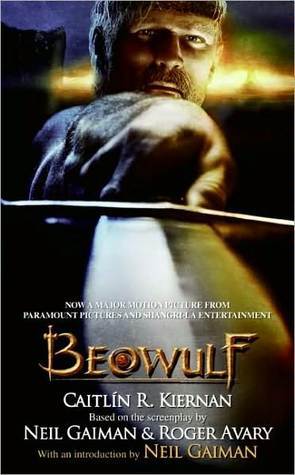More on this book
Community
Kindle Notes & Highlights
Beowulf glances quickly at Wiglaf, then back to the watch and his horse. “I am Beowulf,” he says again. “I have come here to kill your monster.” “Unless you’d rather we not,” adds Wiglaf, earning a scowl from Beowulf. “You should ignore him,” Beowulf says. “He was very seasick this morning, and I fear he might have puked his wits overboard.”
“Why do they kill dragons?” he asks his mother, and she sighs and slithers about at the edge of her pool. “Because they are not dragons themselves,” she replies. “And is this why they kill trolls, as well?” “They are not trolls,” she answers. “They have neither the fiery breath nor the wings of dragons, nor have they the strength of trolls. And they are ever jealous of those things, and fearful. They destroy, Grendel. They despoil. They destroy for glory, and from jealousy and fear, to make the world safe for themselves.
“Where would I be without you, Wiglaf.” “Lost, my lord. Lost and wandering across the ice somewhere.”
“Will their wives and children be comforted with thoughts of valiant deaths and glorious Ásgard?” asks Wiglaf, turning away from the fire and looking toward the open doors of the horned hall. The pony snorts loudly. “I wasn’t asking you,” says Wiglaf, and he goes back to watching the fire. Hrothgar has promised that the ashes will be buried out along the King’s Road and marked by a tall menhir, with runes to tell how they fell in battle against the fiend Grendel. “Perhaps that will comfort the grieving widows?” he sighs. “To know their husbands lie in fine graves so far across the sea.” …but I
...more
“That is the meaning of this life. The long wait for death to claim us. A warrior’s only solace is that he might find glory before death finds him. When I am gone, what else shall remain of me, my lady, except the stories men tell of my deeds?”
“I know that underneath your glamour you’re as much a monster as my son Grendel. Perhaps more so.”
“One day,” says Hrothgar, placing the crown once more on his head, “one day you will, I think. One day, you will understand the price—the terrible price—to be paid for her favors, and for the throne. You will know how a puppet feels, dangling on its strings…” Then he trails off and chews at his lower lip.
“All hail,” he says, and swallows, the words sticking like dust in his throat. “All hail King Beowulf!” And he places the golden circlet on Beowulf’s head, glad to be rid of the crown. In years to come, he will recall the way it felt in his fingers, the weight of it, the peculiar sense that it was somehow unclean. For a time there is only the howling of the winter wind, the waves battering themselves against the rocky shore.
“Aye,” says Wiglaf. “But can you blame them? Your legend is known from the high seas and the snow barriers to the great island kingdom. The whole world knows the lay of Beowulf and Grendel. You are the monster slayer.” Beowulf shakes his head again and laughs, but there is not the least trace of humor in the sound. “We are the monsters now,” he says, making no effort to hide his disdain and self-loathing. “We are become the trolls and demons.”
“No, lord. Don’t say such things. You slew Grendel’s mother. When we were yet young men. It’s in the saga—” “Then the saga is a lie,” says Beowulf, raising his voice, angry and almost shouting, and he feels something pulling loose inside his chest. “A lie,” he says again. “Wiglaf, you know it was a lie. You always knew.”


